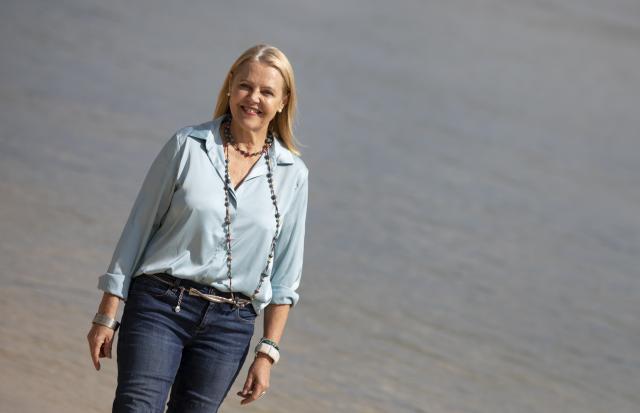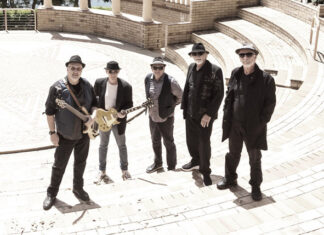Similar to an adjournment debate speech or other limited allocated speeches in Parliament, I use every opportunity to raise aspects of our world that impact upon every single person in our community, as well as across Queensland and Australia.
The aspect this month is the buzzword ‘sustainability’ which is used in every government document, policy and strategy to the point where it may have become ‘white noise’. The underpinning contributors to unsustainability are rarely spoken about, with speeches rarely watched, as they do not attract headlines that the symptoms of inefficiencies promote such as ambulance ramping or homelessness.
What is it to sustain? Wikipedia says to ‘strengthen and support physically and mentally’.
Sustainability? Described as ‘the ability to be maintained at a certain rate or level’.
Whether we are talking our environment, economy, or our household, sustaining is multi-faceted, and includes affordability. What use is a sustainable product, or endeavour, if you cannot afford to use it, or for governments to implement it?
There are many examples in our legislation, policies and strategies where we are not thinking with ‘sustaining’ in mind, and I will share just a couple in amongst the hundreds
For two years we have been advocating for passive wastewater systems, which are economical and have been proven successful across Australia and internationally. These units are used where there is no connection to town sewage infrastructure, and where it is environmentally not suitable for the use of other systems such as septics.
However, the proposed new Australian Standard for on-site sewage treatment, being made mandatory under Queensland’s Plumbing and Drainage Act, will implement a minimum 8-person capacity for an on-site domestic wastewater treatment system. This, in an era where households are growing smaller, with an Australian average now 2.6 persons, and the demand for granny flats and tiny homes growing due to our housing crisis.
This will mean, one-bedroom households that are required to install these treatment systems will need to use larger units with bigger holes dug, causing construction, maintenance, and electricity to be more expensive, when these sizes are not actually needed.
Affordability is a part of sustainability and in this case, we are making sustainability unaffordable. Makes no sense, does it?
And then there are Environmental Upgrade Agreements, or as we call them EUA’s, which we have been seeking since 2019 for both commercial and residential buildings as they are an affordable way to install solar panels and create less emissions. EUA’s are an innovative financing arrangement, where a building owner borrows money from a financier, which can include local governments, and makes the repayments through the council rates system. It is voluntary, with long payback times which can be passed along when the building is sold rather than the finance having to be wound up.
This is sensible if we want to transition faster to renewables. The State Government have just announced in the Energy and Jobs Plan they will be implemented, however only for commercial premises whereas in Victoria they have upgraded the legislation for EUAs to include residential dwellings.
In our electorate, by far the larger number of buildings are residential. EUA’S will make a difference to our businesses, and our emissions, however with half of our homes without solar panels, residentials should be included.
It sometimes seems that while we take two steps forward with some policies, we take one step back with others. Overreach is not the answer with wastewater standards, nor is underreach with EUAs.
And then we get to the tangled, unsustainable web that is our public service. The recent Coaldrake and Auditor General reports highlighted what has already been known regarding the issues affecting the public service sector. Do not get me wrong here, we have incredible people who do a phenomenal job in increasingly difficult times, where expectations, often unrealistic, are higher than at any time in history. This combined with increasing legislation, boxes to tick and risks to manage, results in greater workload and stress, with less dollars for essential on the ground support, whether it be housing, child welfare or health services.
It is vital that this, as I requested in a recent speech in Parliament, is not relegated to the ‘chamber scream’. Instead, we must strive for a collaborative agreement that moves beyond election cycles on how government departments, agencies and statutory bodies can make the improvements required, and retain them.
To be sustainable, Governments must identify emerging issues and respond in a timely manner to community concerns before they lead to even bigger issues, become headlines, or sadly may lead to fatalities.
Local examples include efforts to address the volume of visitors to the Teewah North Shore in the Great Sandy National Park which has been unsustainable for years, with recommendations in 2019 from the Cooloola Teewah Working Group still unrealized which would have gone a long way to addressing issues. With an upcoming meeting to look at the outcomes from the Visitor Capacity Study, may any actions that emanate be implemented promptly after community consultation.
Add in the wait for needed integrated IT systems between Queensland Parks and Wildlife Service and Queensland Police Service as part of effective management of dangerous behaviours, and outstanding overarching strategies such as the Cooloola Recreational Area and Great Sandy National Park Management Plan which are outdated, one by decades, we live daily the ramifications of delays and inaction.
Another is under-utilised social housing, yet nothing was done to provide our agencies with adequate numbers of one-bedroom units or share homes, so badly needed to free up family sized homes, which would have lessened the impacts of our housing crisis, as well alleviate public service staff duress.
When I first became an MP I outlined the costs to everyday Queenslanders, to our public sector workers, communities, businesses, and our future when governments are slow to act.
Waiting until an issue is frontpage news is expensive, reactive, stressful and unsustainable.
The question is, what mechanism exists to ensure that information from the front-line staff of agencies turns into action? And what are the barriers? Is it a lack of funds, culture, monitoring, independent assessments, or political will?
And who is ultimately responsible for ensuring efficient action, with the needed foresight, risk management and innovation as part of an effective and sustainable Queensland public service?
With the Public Service Commission responsible for building a highly capable and responsive public sector workforce, this logically is a starting point.
Ultimately every Noosa electorate resident, and Queenslander, is a stakeholder in creating sustainably. May the government response to the Audit Office deliver answers and create a public service and system that rewards the efforts from public sector workers and all Queenslanders to resolve issues before they become a crisis.
As much as I loathe to suggest a full analysis, I am unsure how else we can move beyond what has and is being experienced. Whichever way is undertaken, it must be supported by all, and not used in the ‘blame game’ of politicking, as that gets us nowhere.
Until next month where happily I get to do a celebration of our community in true Christmas spirit, enjoy our beautiful home and all within, as well those holiday preparations!








